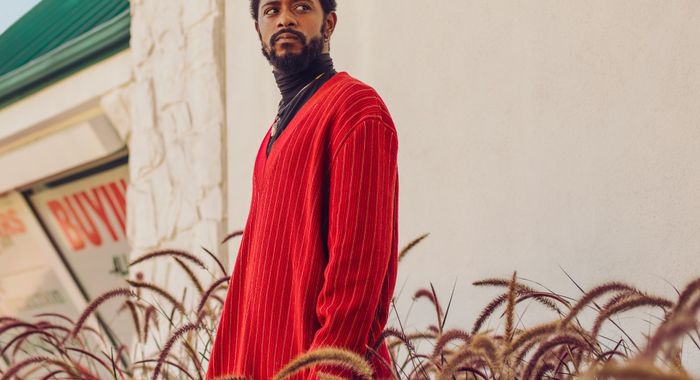My Beautiful Laundrette - Queer Cinema Series - Esquire
Growing Up Gay in a Pakistani Household, 'My Beautiful Laundrette' Gave Me Hope For Esquire's queer cinema series, writer Pritham Bhatia opens up about the impact of the 1985 classic By Pritham Bhatia 18 Jun 2022 egrn8h my beautiful laundrette 1985 working title film with gordon warnecke at left and daniel day lewis image shot 1985 exact date unknown ALAMY As an awkward, self-conscious 15-year-old, riddled with queer desires that I was yet to act upon, I remember watching My Beautiful Laundrette at my Pakistani grandmother’s house. I was alone. I waited until after she had gone to bed, and I watched with a sense of amazement that a mainstream film about a gay Pakistani immigrant falling in love with a handsome, British gang member even existed. It was 2005, and my teenage years were spent watching gay men take leading roles on television for the first time in shows like Will & Grace and Queer as Folk, as well as watching openly gay Graham Norton and Paul O’Grady host primetime talkshows. But Stephen Frears’s 1985 film, starring a very young Daniel Day-Lewis as the street punk Johnny, was the first time I had seen two men from different races – never mind a fellow Pakistani – kiss on-screen. 15 years later, it has stayed with me. The film follows the coming-of-age of Omar, a pre-college, overly dutiful son, bound by family expectation. He balances a tight schedule between looking after his elders and finding his independence. Johnny is different. He is a freewheeling, can-kicking outcast. He flaunts his toned and lithe body. He has a shock of bleached hair. He has a south London accent. In short: the opposite of Omar – and me, another rule-abiding, good Asian son. That difference was deeply attractive. This content is imported from YouTube. You may be able to find the same content in another format, or you may be able to find more information, at their web site. Omar’s family was part of the Asian aspiring-middle classes: desperate to gain a higher social strata through hard work, while simultaneously seeking acceptance in a foreign country by acting as if it's already happened. Of this mentality, Omar feels at odds, not only in pursuing his affections for a white, unemployed man, but also in tearing himself away from his father’s desire for him to pursue education. He also defies Pakistani family conventions by refusing to marry his cousin. He is, ultimately, living a double life: the golden boy to his family, and the lover boy of a fascist troublemaker. His desire for Johnny is a desire for another life. Growing up in a second-generation Pakistani household, I remember the difficulties in not only trying to navigate and express my sexuality, but to break free from the preset family role of both provider and caretaker which fell onto my shoulders as the only son. Although this was the London of the early Noughties, and Omar is in Thatcherite Britain, family and cultural norms endure, and though I had come out to my close friends at school, I was in the closet at home. For the first time, I had seen myself represented. In one scene, we see Omar begrudgingly cutting his Dad’s overgrown toenails at home on a Friday night, only to accidentally cut his father’s foot open when he receives a covert phone call from his lover, Johnny. Johnny is disillusioned with the status of the working class, and is struggling to find a sense of identity in Eighties immigrant-heavy London. Yet when Johnny and Omar collide, instead of simply both finding a way to make ends meet, they mutually discover a new sense of purpose: Omar to reach financial and sexual freedom, and Johnny to escape a cycle of dead-ended frustration. What makes Daniel Day-Lewis’s portrayal so intoxicating is that his Johnny doesn’t just represent the exoticism of a different world, but also that of acceptance and belonging for Omar in the landscape of a changing country. Then, Johnny becomes the protector and ultimate participant in realising Omar’s dreams. The sensuality between them boils over when they both find belonging. Johnny is welcomed into Omar’s family home as a worker, and the tenure serves as a catalyst to a long-awaited kiss under the streetlights. This is the first time we get to see the covert lovers succumb to uncontrollable lust. It is electrifying. The next time is in the backroom of their newly acquired premises – the titular launderette – where we first see the two disrobe, and express those hidden desires away from the racial and class divides occurring in Thatcher’s Britain. It is this lovemaking that transforms the former dilapidated social club into something beautiful. related story The 51 Best Movies on Amazon Prime UK Later in the film, Omar’s cousin, who he was expected to marry, identifies his homosexuality, but makes no fuss of it. She comes searching for him at the laundrette before she flees her own family. Johnny asks: “Have you ever touched him?” As a self-conscious, semi-closeted gay who trained himself to look with desire but never touch, it is here I was reminded of the power and vulnerability in admitting a need for physical intimacy. Yet it’s the moment when Omar embraces Johnny outside the newly renovated laundrette, to an audience of Johnny’s right-wing extremist gang members, when Johnny secretly licks Omar’s neck, that shows My Beautiful Launderette at its headiest. Johnny faces a charge of treason from his gang, of “going where he doesn’t belong”. “Everyone needs their own tribe” they say. But in that lick, Johnny defines his new territory, and gives into the longing so many of us felt in our adolescence in front of the very people from which we hide. He has found his tribe.

